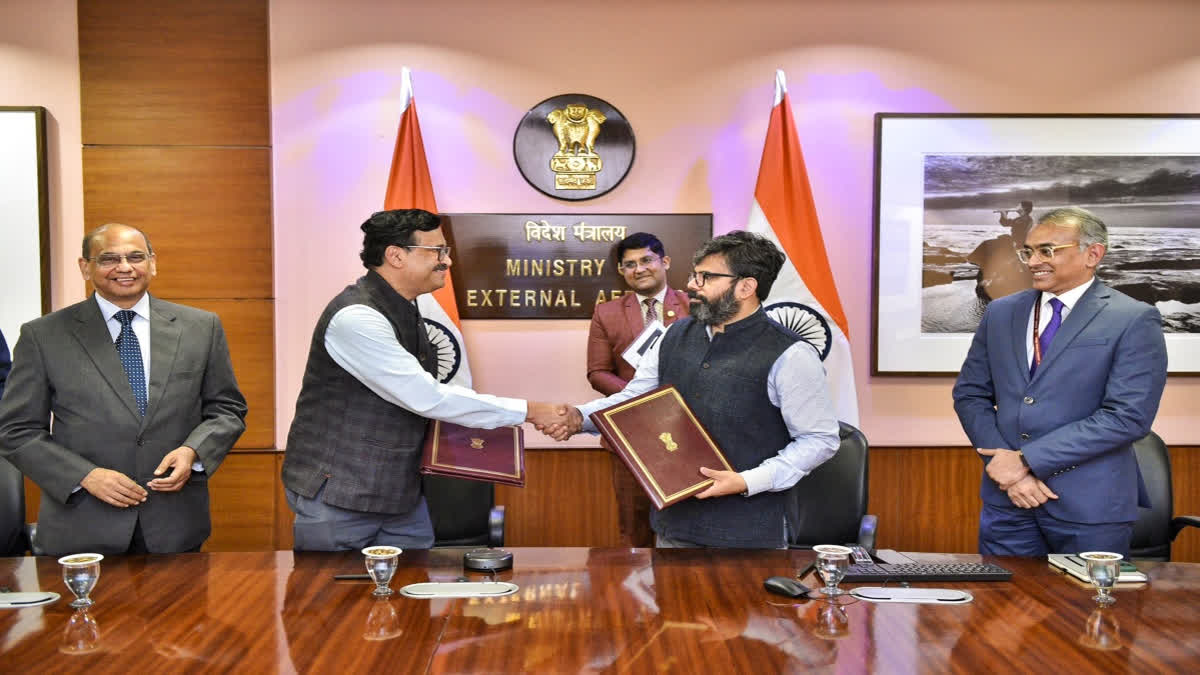New Delhi:In a major development, India’s Ministry of External Affairs signed a Project Implementation Agreement with the International Solar Alliance (ISA) on Tuesday, which aims to operationalise solar energy projects in Comoros, Fiji, Madagascar, and Seychelles.
The ISA, as the project implementing agency (PIA) would provide programmatic assistance to these Indo-Pacific countries. These projects underscore India's Quad commitment to renewables and just energy transitions in island nations of the Indo-Pacific.
According to the Ministry of External Affairs, the Wilmington Declaration released at the Quad leaders' summit in Delaware, USA on 21 September this year, stated that the Quad countries will work together, through policy, and public finance, to operationalise their commitment to catalyse complementarity and high-standard private sector investment in allied and partner clean energy supply chains. To this end, India has committed to invest USD 2 million in new solar projects in Fiji, Comoros, Madagascar and Seychelles with financial support from India.
As per a study undertaken by the ISA, the countries under consideration for solar projects have energy issues related to the perishability of agricultural products, unreliable electricity supply in health centres and for irrigation purposes in remote areas where grid power supply or solar mini-grids are not available yet.
Based on discussions with the project recipient countries, solar projects in the areas of cold storage, solarization of health care facilities and solar water pumping systems are under consideration. The successful execution of these projects is expected to enhance energy access, create employment, and provide reliable and quality power supply in these Indo-Pacific countries.
Expert's view
Speaking to ETV Bharat, Dr Mansi, Assistant Professor at Amity University, Haryana and an expert in geopolitics and India in Indo-Pacific, said, "India currently holds the presidency of ISA and this agreement not just reinforces India's commitment to the solar energy under its Panchamrit initiative for climate action but also its Indo-Pacific Ocean Initiative (IPOI) and Island Diplomacy in the Indo-Pacific region. The geopolitical waters of Indo-Pacific is increasingly becoming a contested place with the great power rivalry between the US and China".
"Both these countries are trying to woo the small island nations of the region and expand their military and economic influence. In the case of India, the outreach to these island nations is also a way to counterbalance Chinese influence and provide an alternative to the China-led initiative. Basically, countering the Chinese string of pearls with that of ‘necklace of diamonds’. The initiative taken under the garb of non-traditional security like climate change has the potential to boost India's position and add to its image as a major player in the region," she added.
